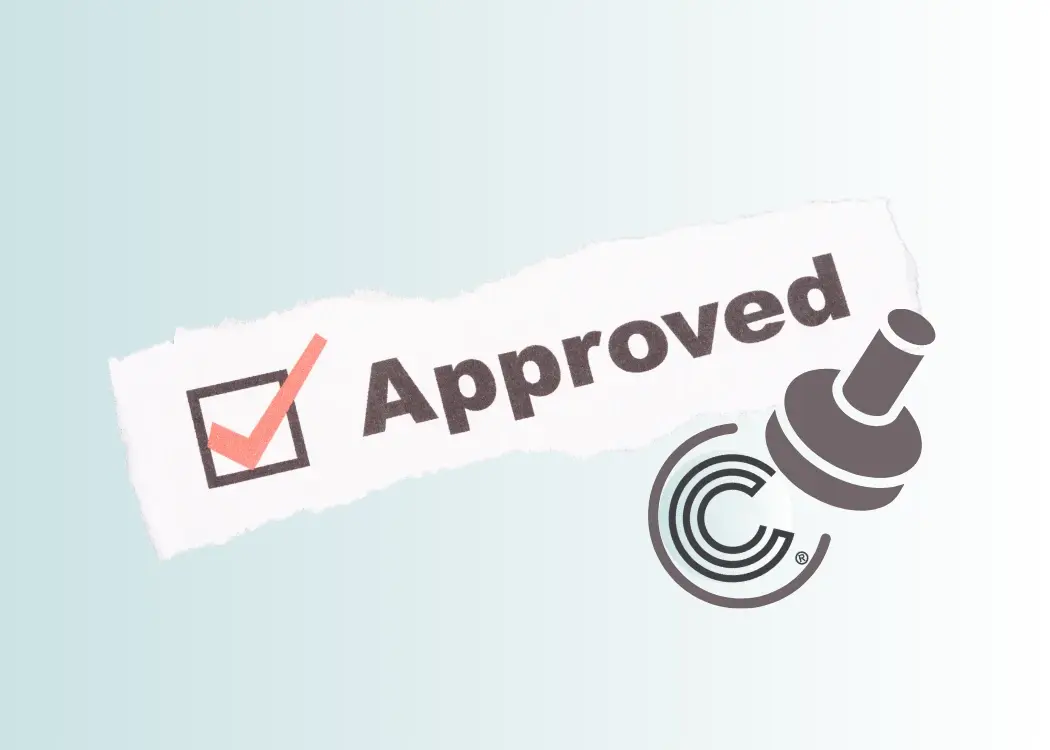The ultimate artwork approval checklist: step-by-step process
Artwork approval is a critical step in packaging, marketing, and product label production. A missed detail can lead to costly reprints, delays, or...
5 min read
 Ekaterina Skalatskaia
:
Updated on June 13, 2025
Ekaterina Skalatskaia
:
Updated on June 13, 2025

Packaging artwork errors are like typos in a legal contract: small, but potentially devastating. A misplaced word, a misaligned barcode, or a regulatory detail left out can spiral into product recalls, halted shipments, compliance fines — and reputational damage that’s hard to fix.
In 2025, where packaging plays a vital role in both brand identity and shelf performance, avoiding these errors isn't optional — it's essential.
In this article, we uncover why packaging mistakes keep happening, even in well-run teams, and how modern artwork workflows can help eliminate errors for good. We'll also explore how tools like Cway® streamline packaging artwork design and optimize your packaging processes from start to finish — and look at real-world examples where brands learned these lessons the hard way.
Consider this: your new product is finally in stores. But within days, you’re pulling it off the shelves because of a packaging label error — perhaps an incorrect nutritional value, a missing allergen warning, or a wrong translation for an international market.
These aren't hypothetical. A staggering number of food recalls stem from packaging errors, particularly incorrect or missing allergen information. According to Epic Systems, these label-related errors frequently lead to high-profile recalls, consumer health risks, and financial losses.
Just ask Mondelez International, which agreed to a $10 million settlement after being sued over its Wheat Thins packaging, falsely marketed as "100% whole grain." The fine print — and faulty label — cost far more than just legal fees. It shook customer trust in the brand’s transparency.
Or look at Mattel, which had to recall large volumes of toys due to labeling and packaging issues — a costly mistake that damaged its brand and highlighted the importance of better quality control in bulk printing and production oversight.
Goodbye Chaos. Hello Control!
Before you can fix a problem, you have to recognize it. While some errors are obvious — like typos or misprints — others lurk deeper in the process and can be just as damaging.
Here are some of the most common packaging artwork mistakes that continue to trip up even the most seasoned teams:
A single wrong digit in the nutritional info or a misspelled ingredient can result in product recalls or legal trouble — especially in regulated sectors like food, pharma, or cosmetics.
Colors that don’t match across packaging lines or don’t print as intended can hurt brand recognition. This issue becomes even more critical in bulk printing, where small color mismatches are multiplied at scale.
Missing allergen warnings, incorrect usage instructions, or outdated legal disclaimers can violate local regulations — and fast-track your product to a recall list.
Poor barcode placement or scannability errors can disrupt logistics and sales tracking. These issues often slip through because they’re not always checked during artwork reviews.
In multilingual markets, one bad translation can alienate entire customer segments or worse — misinform them.
Design elements that shift during final file export or prepress often go unnoticed until after printing, leading to off-center logos, overlapping text, or skewed graphics.
Despite digital workflows and experienced teams, the most frequent errors in packaging labels and design still come from:
Fragmented collaboration: Too many teams — from marketing to legal — reviewing in silos.
Messy version control: Multiple versions flying across email threads or shared drives without structure.
Ambiguous feedback: Vague comments like “fix this” with no clear direction.
Regulatory complexity: Evolving compliance rules in different regions or product categories.
Tight print deadlines: Especially in bulk printing, errors often aren't caught until it's too late.
Even major brands fall into these traps. When Tropicana redesigned its packaging in 2009, it failed to test how the change would be received by customers. The result? A 20% drop in sales in just two months — nearly $30 million in losses — all due to packaging that confused and alienated loyal buyers.
To stop errors at the source, high-performing teams are rethinking their packaging artwork design process — building workflows that emphasize clarity, collaboration, and compliance.
Here’s how they do it:
No more scattered files or "final_final3" versions. A single, shared space for all design assets, guidelines, and feedback ensures everyone works off the latest version.
Cway’s cloud-based asset management keeps your packaging content organized and accessible — for everyone involved.
Instead of passing files around manually, build structured approval workflows that route artwork to the right people at the right time. This minimizes back-and-forth and ensures that key stakeholders — including legal and regulatory teams — sign off before files go to print.
Cway® allows you to automate approvals, set deadlines, and get instant visibility into who’s holding things up.
When teams rely on manual proofreading alone, even obvious errors get missed — especially under time pressure. With tools that automatically scan for barcode issues, color mismatches, or missing regulatory info, you can prevent many packaging label errors before they escalate.
General feedback leads to general confusion. With Cway®, stakeholders can leave precise, contextual comments right on the artwork — removing ambiguity and speeding up revisions.
This clarity is especially critical when updating packaging across product lines, countries, or languages.
Packaging isn’t just a wrapper — it’s a promise. A promise that your product is safe, compliant, and high-quality.
In a crowded market, flawless packaging signals professionalism and care. Errors, on the other hand, can signal chaos behind the scenes.
That’s why brands that invest in clean, reliable packaging processes see faster launches, better retailer relationships, and higher customer trust.
Cway® is more than an artwork tool — it's a workflow engine designed to prevent packaging errors from happening in the first place.
Here's how Cway® helps you take control of your packaging artwork design process:
Centralized file management for all artwork, guidelines, and reference materials
Real-time visual proofing: annotate directly on artworks to avoid miscommunication
Smart approval flows with automated reminders and audit trails
Resource workload balancing: see who’s over- or under-allocated and adjust assignments instantly.
Data-driven insights: track performance with built-in analytics and reporting.
If your team has ever had to halt a product launch, reprint a label, or apologize to a retailer because of a simple mistake, you're not alone. But there’s a way to change that.
By moving from reactive to proactive — from scattered to structured — you can take the guesswork out of packaging.
Cway® empowers your team to deliver error-free artwork, on time and on brand, every single time.
Ready to reduce risk and speed up your packaging process? Explore how Cway® can help
In conclusion, by implementing structured review processes, leveraging automated compliance checks, and adopting purpose-built approval platforms, you can dramatically reduce packaging artwork errors and streamline your workflow. For further reading, you can explore top visual feedback tools, learn how to streamline your packaging and marketing workflows with digital asset management (DAM), and discover the benefits of dedicated approval platforms.
Packaging errors refer to mistakes that occur in the design, labeling, or printing of product packaging. These can include typos, incorrect regulatory information, color mismatches, barcode issues, or design misalignments. While some may seem minor, these errors can have serious consequences — including product recalls, legal non-compliance, or damage to brand reputation.
Packaging artwork refers to the visual and informational elements printed on a product's packaging. This includes logos, branding, ingredient lists, legal disclaimers, barcodes, usage instructions, and design elements like layout, color, and typography. Effective packaging artwork design ensures that all required information is accurate, visually aligned with the brand, and compliant with local regulations.
The packaging artwork approval process is a structured workflow that involves multiple stakeholders — such as marketing, regulatory, legal, quality assurance, and production — reviewing and approving artwork before it goes to print. This process ensures that all content is correct, compliant, and ready for mass production. Modern solutions like Cway automate and streamline this process to reduce delays and eliminate errors.
Industries with strict labeling and regulatory requirements are most at risk — including food and beverage, pharmaceuticals, cosmetics, and consumer goods. In these sectors, even minor packaging label errors can trigger recalls, legal penalties, or harm to consumers.
To avoid artwork errors:
Use centralized artwork and asset management systems
Establish clear approval workflows
Automate checks for compliance, spelling, and barcode accuracy
Involve all necessary stakeholders early
Use annotation tools for contextual feedback
Maintain up-to-date brand and legal guidelines

Artwork approval is a critical step in packaging, marketing, and product label production. A missed detail can lead to costly reprints, delays, or...

Getting packaging and design approvals right is critical—but too often, teams rely on outdated tools and disconnected processes. In this article,...

Creating packaging isn’t just about great design—it’s about building an approval workflow that ensures every step, from concept to shelf, is aligned,...